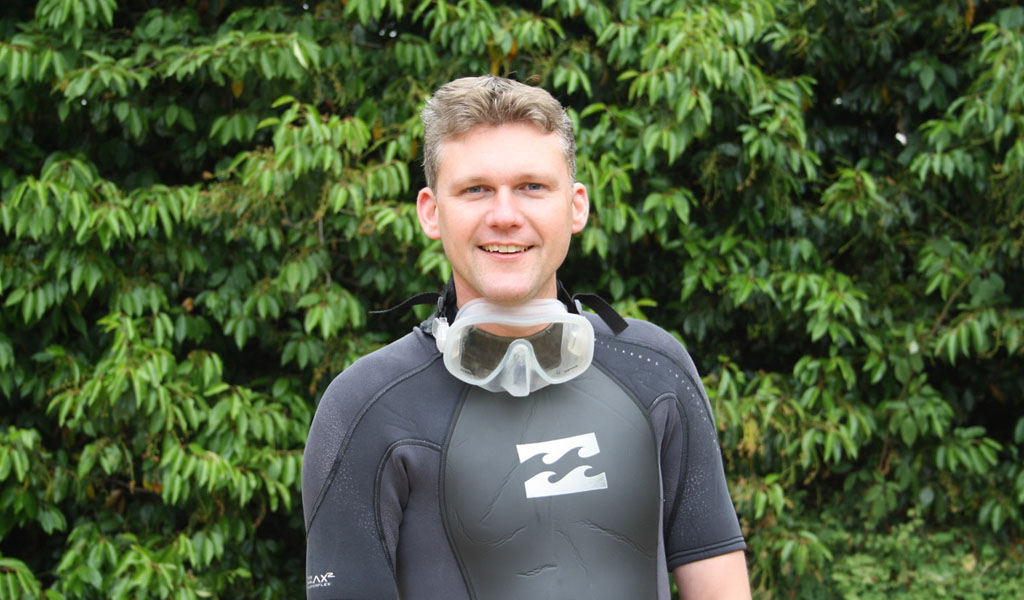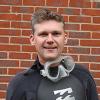
Dai Atkins was elected BSAC’s National Diving Officer in May. Now six months into the job, SCUBA asks him about his approach and ambitions for BSAC diver training.
So, six months into the job as NDO, how are things going?
It’s going fine… we have some jobs to do, we’re doing them and I’m keeping my email responses down to under 100 a day. We’ve been identifying certain areas that we should be focussing on, and then selecting a team of people to help address them. Fortunately, with a team of awesome volunteers working on National Diving Committee (NDC), several projects can be managed simultaneously.
Tell us more about these projects
The obvious one is the on-going Diver Training Programme Review, which is looking at Sports Diver and how we ensure it remains fit for purpose and integrates well into our suite of diver training grades. Other areas include:
- The various instructor grades and how we maintain the quality of tuition and give our instructors the best opportunities.
- How we best report on safety issues and provide advice and tailor our courses accordingly for divers.
- Where best we can support our members through various campaigns to get them training and diving.
- Continuing the good work our Technical Group has been doing in keeping up with advancements in new technologies, using closed-circuit and mixed gas in recreational dives.
That’s without all the individual courses and requests we have been asked for – projects are endless! But the challenge is prioritising the ones our members need and want the most and not wasting any time or resource on those that aren’t. Oh and don’t forget, I’m a volunteer too and have not one, but two other day jobs.
What made you want to stand for National Diving Officer?
In all honesty, it wasn’t a destiny I thought was for me. There had been people who passed the National Instructor examination ahead of me, and who had more experience, yet here I am. It’s a huge responsibility; if anything goes wrong I am responsible, so if anyone thinks I’m taking this lightly, they’re wrong!
What has prepared you for taking on such a responsibility?
I have had some seriously good mentors in the BSAC over the years since I started diving, and have also had some pretty strong predecessors, whose boots need filling. In my day job, I am always trying to find ways to ensure senior experts in their field pass on their experiences to the next generation, and where this may not be possible, try and fulfil the role of ‘conduit’ to ensure we don’t lose vital information. I believe the same is true in diving, where we need to incorporate new techniques and technologies, while retaining all the lessons we have collectively learned over the years.
What do you have in the pipeline?
I want to ensure that our programme reviews are indeed proper, exhaustive reviews – and not a gloss-over every ten years. Programmes need checking for validity more frequently to see they fit the bill, especially as technology advances and peoples’ diving habits change. Courses that people need, ways to dive that people want, and opportunities that members should have. We should be keeping admin down to a minimum and embracing digital technologies so members can find out about developments in diving, and report their own activities at the swipe of a thumb.
What’s your favourite SDC?
I have two which mainly relate to meddling with breathing gases (because I’m a bit of a physics geek) – the first is gas blender, learning to safely blend high pressure gases to suit a particular dive plan. The second is Accelerated Decompression Procedures (ADP), learning to put theoretical decompression models into practice safely and to maximise the efficiency of our dives through knowledge of the physiological aspects of switching the gases we breathe at depth. It’s an important introduction to the world of mixed gas diving.
What would you like BSAC to have achieved – in terms of its training – by the time your term as NDO comes to an end?
I would like to see our instructors have the opportunity to put their well earned qualifications to use in as many ways possible, whether that be contributions to projects, enjoying their recreational diving safely, or teaching others how to do it.
I’d also like to see BSAC, in our capacity as UK National Governing Body for diving-related activities, continue to be the ‘go to’ organisation for advice on diving and diver training. We have more than 65 years of experience, backed up by many thousands of members in the UK and overseas – the amount of knowledge and expertise among our instructors is a resource that simply cannot be taken for granted.
Join the fun, find your local BSAC club or join BSAC online today.
If you need help finding a club please email training@bsac.com and we'll send you your three nearest scuba clubs. Or if you fancy a chat call us 0151 350 6226 (Mon - Fri, 9 - 5:30).

 Author: Dai Atkins | Posted 19 Oct 2018
Author: Dai Atkins | Posted 19 Oct 2018


